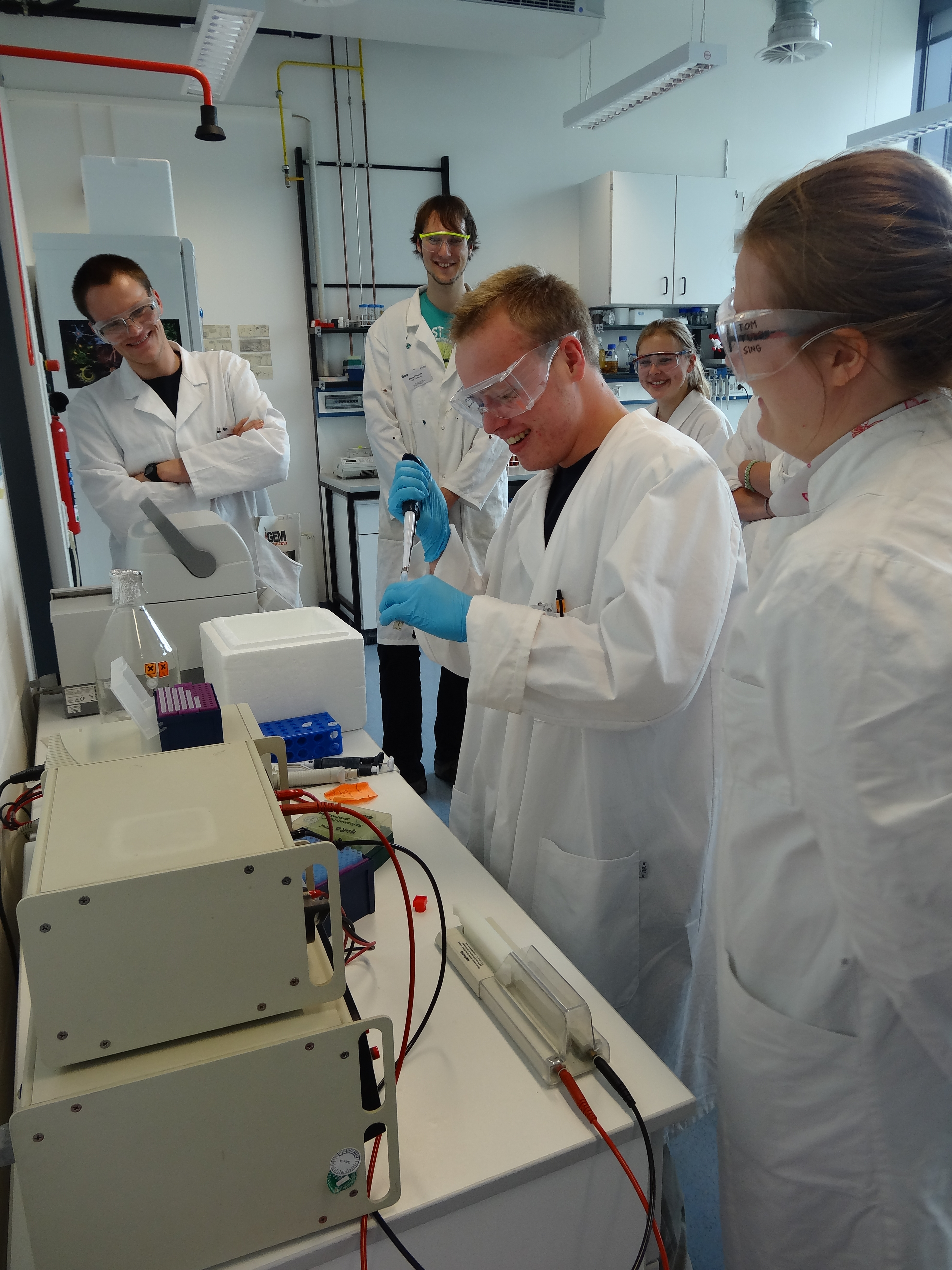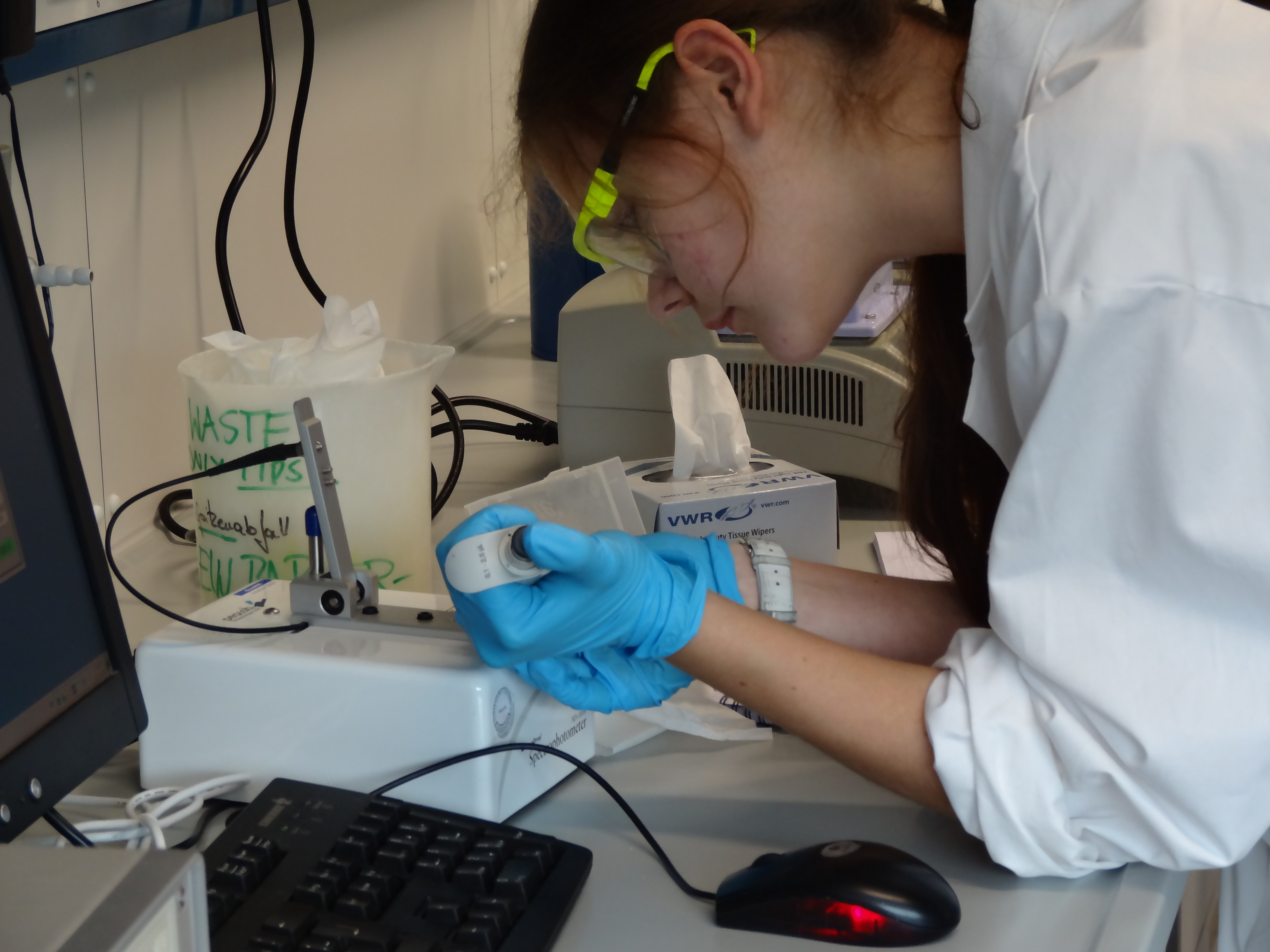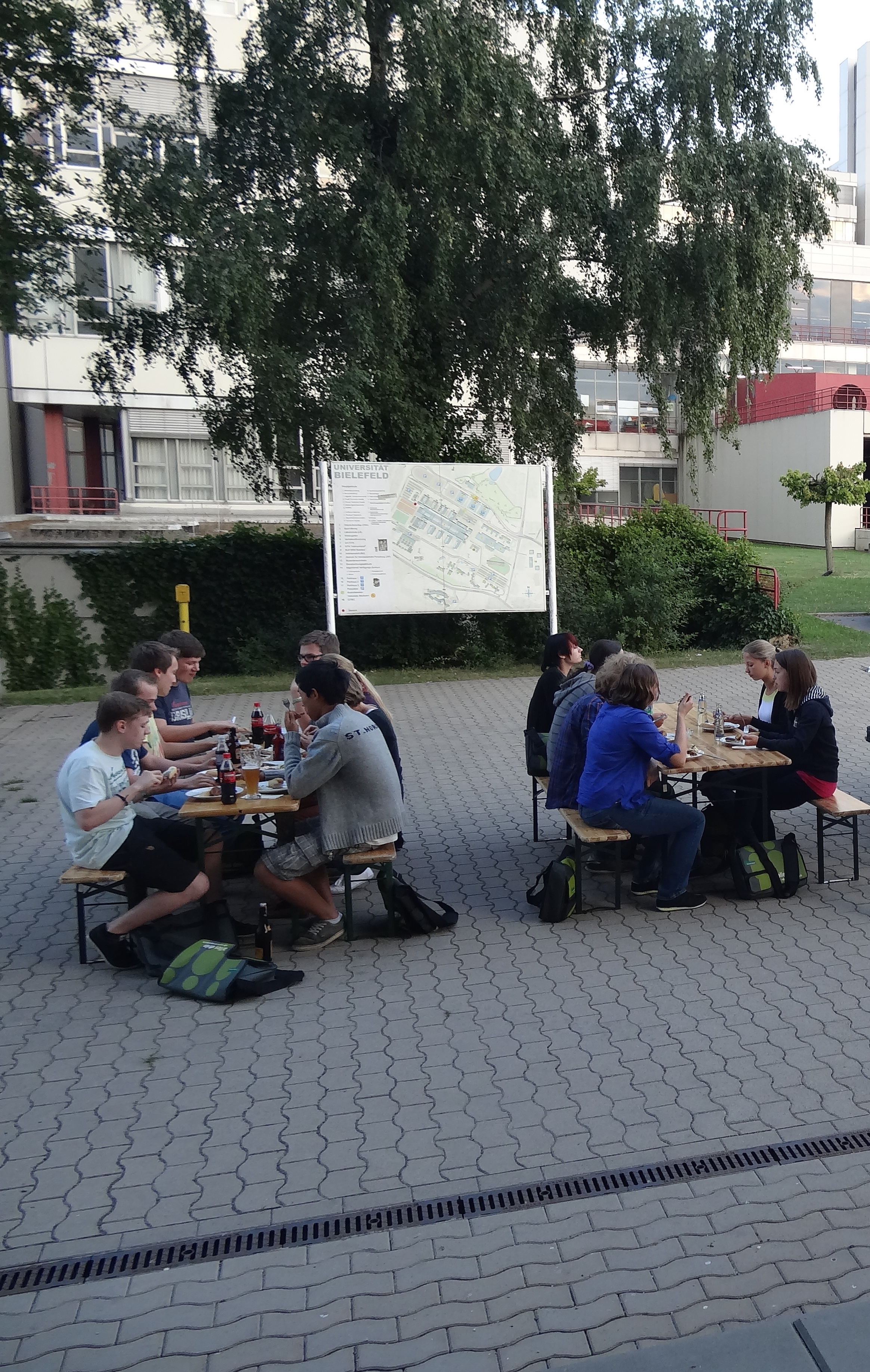Team:Bielefeld-Germany/Human Practice/Student Academy
From 2013.igem.org
| Line 19: | Line 19: | ||
The experiment, developed and maintained by us, consisted of two trials. In the first trial the students performed a transformation of a plasmidmix in e. coli KRX via electroporation. The mix consisted of pSB1C3+RFP and cp46+GFP+HisTag. The transformed cells where then plated on LB-Plates without antibiotica, with chloramphenicol or kanamycin. On the next day, the students should examine the plates. Afterwards they ought to be able to say which antibiotic resistance and which reportergene were located on the same plasmid. | The experiment, developed and maintained by us, consisted of two trials. In the first trial the students performed a transformation of a plasmidmix in e. coli KRX via electroporation. The mix consisted of pSB1C3+RFP and cp46+GFP+HisTag. The transformed cells where then plated on LB-Plates without antibiotica, with chloramphenicol or kanamycin. On the next day, the students should examine the plates. Afterwards they ought to be able to say which antibiotic resistance and which reportergene were located on the same plasmid. | ||
</p> | </p> | ||
| + | |||
Revision as of 11:00, 3 October 2013
Student Academy
This year, the “2. CeBiTec Students Academy” took place at the Centre for Biotechnology in Bielefeld. Twenty commited, young students from the region of East Westphalia were invited to obtain a comprehensive insight into various aspects of biotechnology and synthetic biology. This included the execution of four experiments that dealt with the fundamental aspects of biotechnology as well as an exhibition to “evonik industries” in Halle/Westfalen.
We, the iGEM-Team Bielefeld 2013 were fortunate to supervise one of these experiments and to write the corresponding script (Link!). The best thing, of course, was the experience of getting in touch with open minded teenagers and trying to sell this “next generation” of junior scientists on laboratory work, general biotechnological approaches and last but not least, on iGEM.
The experiment, developed and maintained by us, consisted of two trials. In the first trial the students performed a transformation of a plasmidmix in e. coli KRX via electroporation. The mix consisted of pSB1C3+RFP and cp46+GFP+HisTag. The transformed cells where then plated on LB-Plates without antibiotica, with chloramphenicol or kanamycin. On the next day, the students should examine the plates. Afterwards they ought to be able to say which antibiotic resistance and which reportergene were located on the same plasmid.
The second trial was a plasmidisolation from a plate. While working off the isolation script, the students were asked to think about the ingredients of the miniprep-kit (i.e.: the smell of the appropriate solutions is pretty remarkable) and what they might do to bacteria and its plasmids.
The many questions asked by the students afterwards at the collective barbecue and through the rest of the week and their appreciation for our aspirations gave us the feeling that these young boys and girls might took something home with them. Hopefully, someday it´ll lead them back to a career in synthetic biology, just like we have been lead here once upon a time.
We thank the organization-team for their trust and support.
 "
"





